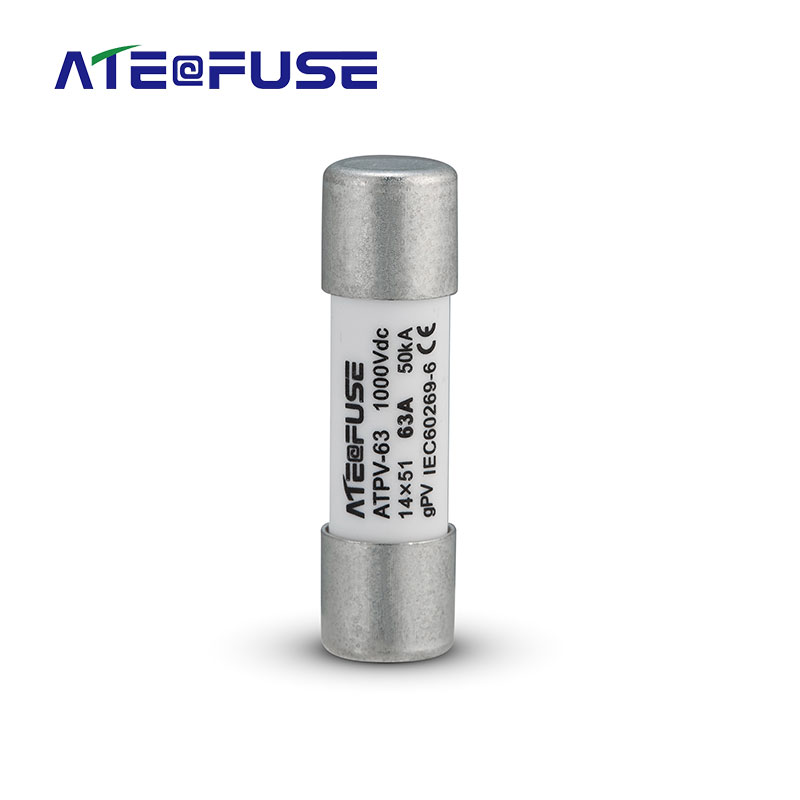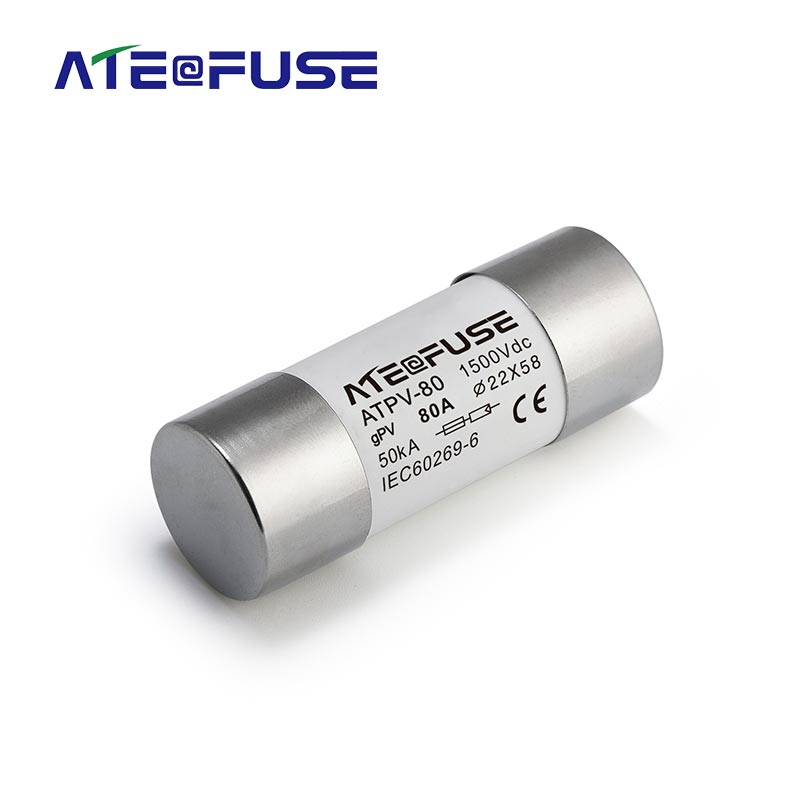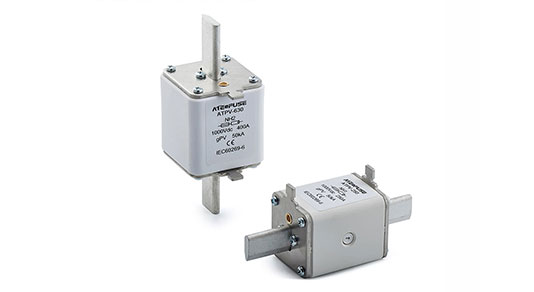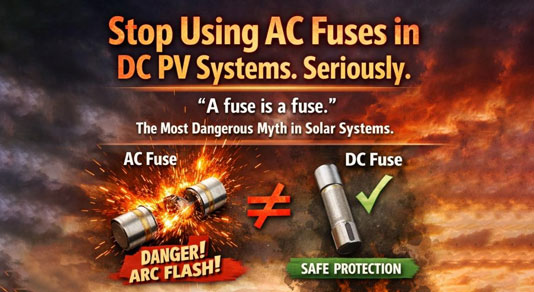1000VDC Fuse manufacturer tells you the difference between AC fuses and DC fuses
The difference between AC fuses and DC fuses
Both AC fuses and DC fuses are power protection devices whose main function is to protect circuits and equipment from overcurrent damage. However, they have certain differences in structure and working principles.
AC fuses usually use low-voltage fuses as protective components, which can interrupt current in the circuit to protect circuits and equipment.
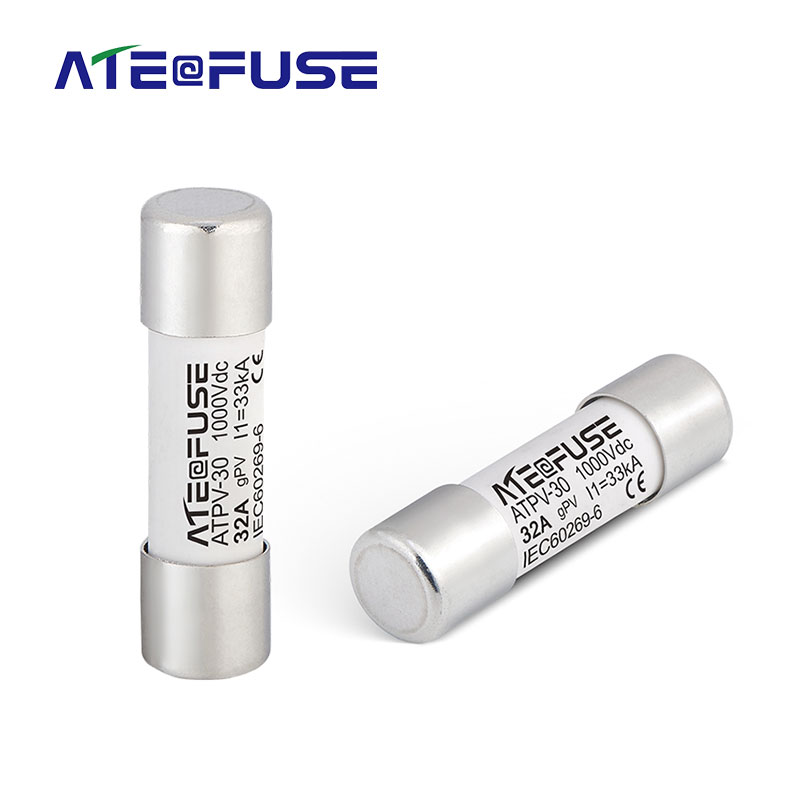
1000VDC FUSE Manufacturers tell you that DC fuses usually use high-voltage fuses as protective components. The short-circuit current of the DC circuit will increase with time, so the DC fuse must have good short-term overload capability. In addition, DC fuses must meet high breaking capacitance requirements.
DC is low voltage and small current and low voltage and large current, while AC is high voltage and small current and high voltage and large current.
DC fuses and AC fuses belong to the same type of current-limiting fuse. Their appearance design and structure are very similar, but there are big differences in the process of breaking current:
In the form of an AC sine wave conducted by an AC fuse, at the zero crossing of each cycle, the minimum value of the charge is easy to extinguish the arc; there is no zero crossing point in any waveform of the DC fuse power supply. When the DC system is disconnected due to a short-circuit fault current, the rapid vaporization of the fuse and the diffusion, adsorption, and cooling technology of quartz sand can force the arc to extinguish. Therefore, it is much more difficult than breaking the AC arc of the grid.
DC fuses and AC fuses both belong to the category of current-limiting fuses. Their appearance and structure are very similar, but the current breaking process is very different:
1. The alternating current is transmitted alternately in a sinusoidal waveform, and each wave has a zero-crossing point. At this time, the electricity value is the lowest and it is easy to extinguish the arc;
2. The manufacturer of 1000VDC FUSE tells you that there is no zero-crossing point in any DC waveform. When breaking the DC short-circuit fault current, the arc is forced to be extinguished by the rapid vaporization of the fused piece and the diffusion, adsorption, and cooling of the quartz sand. Therefore, it is necessary to Much more difficult than breaking an AC arc;
3. DC fast fuses can replace AC fast fuses.
DC fast fuses can replace AC fast fuses, but AC fast fuses cannot replace fast fuses.
These two fuses can be distinguished based on their form of protection. Usually, it can be divided into the following situations:
1. Current-limiting fuse: 1000VDC FUSE The manufacturer reminds you that the fuse is used to limit the current to the maximum load of the appliance itself. For example, the charging voltage specification of a car is 12V, 15A (the fuse is installed as 12V, 15A). If the current is too large (greater than 15a) and causes electrical failure or disconnection, the fuse will open for protection. For example, when a home charger is 110V, 5A (fitted with an AC fuse or circuit breaker), the rated current will be disconnected to ensure electrical safety.
2. Overheating fuse: This fuse is different from the above fuse. It is controlled by heat and does not consider excessive current. However, if the electrical temperature exceeds the rated temperature, it will automatically disconnect to achieve the protection function. Generally speaking, the rice cookers and electric stoves used in our homes are based on this principle, and there are many examples to illustrate it.
Can AC fuses and DC fuses be used interchangeably?
1000VDC Fuse manufacturer tells you that in most cases, AC fuses and DC fuses are not interchangeable. Because there are great differences in the protection components, control circuits, and dimensions of AC and DC fuses, their structures and working principles are different, and their protection characteristics and overload capabilities are also very different. Therefore, when used incorrectly, unpredictable consequences may occur.

